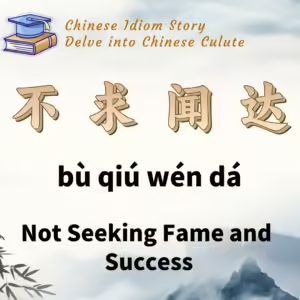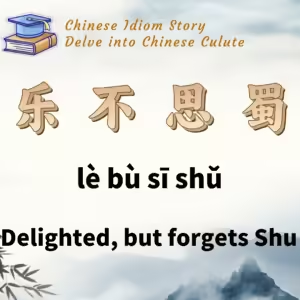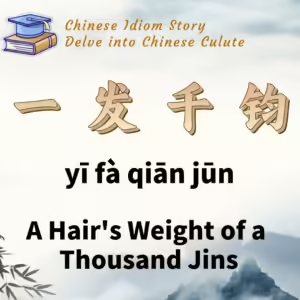
Chinese Idiom: 集思广益 (Ji Si Guang Yi)
English Translation: Gathering Thoughts for Greater Benefit
pīn yīn: jí sī guǎng yì
Idiom Meaning: This idiom means that one should leverage the collective wisdom of a group to arrive at more accurate opinions and to accomplish tasks more effectively.
Historical Source: From Collected Works of Zhuge Liang (Zhuge Liang Ji), specifically the essay “Teaching the Officials.”
Idiom Story:
Zhuge Liang was a renowned politician and military strategist during the Three Kingdoms period. After being appointed as the Prime Minister of Shu Han by Liu Bei in 221 AD, he strongly advocated for the ruler to practice “governing by accepting advice” and to pay attention to the suggestions of his subordinates. He emphasized that if a ruler rejects honest and loyal advice, loyal ministers will hesitate to present their strategies, while unscrupulous officials will act arbitrarily, ultimately harming the state.
When Liu Bei first arrived in Yizhou, he sent Dong Youzhai to assist Zhuge Liang with military and political affairs. Dong Youzhai was straightforward and earnest in his work, possessing keen political insight. During their collaboration, he often raised different opinions and debated with Zhuge Liang, sometimes exchanging ideas ten times or more. Zhuge Liang greatly appreciated Dong Youzhai’s spirit of speaking frankly. After becoming Prime Minister, Zhuge Liang frequently mentioned this experience with admiration. To encourage his subordinates to learn from Dong Youzhai and be courageous in pointing out his own mistakes, Zhuge Liang wrote an essay titled “Teaching the Officials,” which states:
“The role of an advisor is to gather the thoughts of many to benefit the greater good. If one is overly concerned with personal gains and fears differing opinions, the faults and losses will only accumulate. To go against the consensus and find the right path is akin to discarding useless stones and finding jewels. Unfortunately, some people struggle to voice their opinions, with only Xu Yuanzhi (a close friend of Zhuge Liang during his time in seclusion) and Dong Youzhai in my current administration exemplifying this well. If you could achieve even one-tenth of Xu Yuanzhi’s forthrightness and Dong Youzhai’s diligence, while remaining loyal to the state and frequently pointing out my shortcomings, I could reduce my errors.”
Zhuge Liang placed great importance on mobilizing the enthusiasm of officials at all levels. He was dedicated to his duties and held himself to high standards. For the benefit of the Shu Han regime, he did not care about personal dignity, which was quite rare among rulers in a feudal society. After the defeat at Jieting, Zhuge Liang not only took responsibility for the failure and requested a demotion from Liu Shan but also publicized his mistakes so that everyone could be aware. He told his generals, “The failure at Qishan was entirely my fault. I plan to reflect on my shortcomings and explore ways to improve in the future. From now on, anyone loyal to the country should diligently point out my flaws.”
Over time, based on these records and stories, the phrase “集众思广忠益也” was simplified into the idiom “集思广益.”






